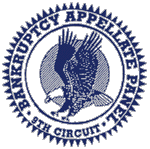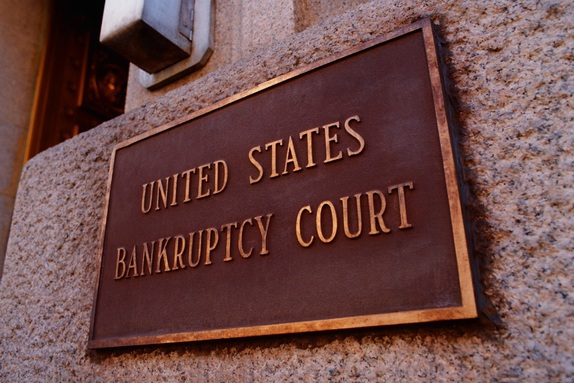Facing Bankruptcy?
You Need A Local Attorney
To Speak With A Bankruptcy Lawyer Near You
Please do not call if you have legal representation.
|
Get A Free Local Referral
In one short call, our trained referral agent will discuss your situation and refer you to an experienced Bankruptcy Lawyer in your area. |
Your Questions Answered
|
If You’re Considering Filing For Bankruptcy - Read This First

BANKRUPTCY MYTHS
Though some suppose that a bankruptcy filing indicates a person cannot avoid the attraction of charge cards, many who seek bankruptcy relief do it for different factors.
Individuals who seek bankruptcy relief are irresponsible.
Long term unemployment, the price of two homes due to a divorce, the costs related to divorce, or even the high-cost of health care have pushed millions of well-intentioned and intelligent Americans into filing for bankruptcy protection.
In 2012, over 5 million Americans were unemployed for six months or even more, based on the BLS. A 2011 study from the CDC discovered that one fifth of households had difficulties paying expenses throughout the preceding year.
All previous debts are discharged by bankruptcy.
Bankruptcy filers hope they'll be ready to start debt-free afterwards, but lots of kinds of debt aren't released by bankruptcy.
For instance, domestic assistance/alimony/child support cannot be eliminated under any conditions. Student loan obligations are also not dismissed unless you can prove a difficulty or permanent impairment - but that procedure is independent from bankruptcy.
You will not need to pay big bills racked up right before bankruptcy.
Many people believe they can stock up their charge cards right before filing. Not the case. Time has shown that the courts consider this fraud, and debt incurred due to fraud isn't released.
Your credit is completely ruined by bankruptcy.
in many cases folks are amazed by how rapidly they will receive credit card apps in their email after filing. Offers for guaranteed credit cards with a low limit may appear w/in a month of your debt release. It's usually recommended that you take advantage of guaranteed credit cards and begin producing normal, on time payments to restore your credit.
After the obligations are discharged, it is wise to examine your credit history and ensure that exactly what was discharged within the bankruptcy is designated as discharged in your credit.
Bankruptcy is a cure all.
Section 7 bankruptcy discharges specific debts, while Section 13 might only reduce debts. Neither provides an easy answer.
In Section 7, you may lose your home. In Section 13, you can maintain your home but will have a moderate lifestyle for at least three and you’ll also need to keep making payments to keep it.
Filing for bankruptcy is inexpensive.
Based on a report launched this month from the National Bureau of Economic Analysis, typical bankruptcy costs are about $1,500.
HOW TO PROCEED BEFORE FILING BANKRUPTCY - THE "DOs" and 'DON'T DOs"
It may be difficult to make solid money decisions when lenders are chasing you. Many consider radical actions that risk their potential capability to eliminate debt once the stress is on.
Be sure to mind your details before filing. There are specific items that the court needs you to do - and never do - before filing bankruptcy in court.
THINGS NOT TO DO BEFORE FILING
Here are a few items to avoid:
Do not think you will be given protection from every silly debt. Before declaring bankruptcy, make sound economic decisions and document them.
THINGS TO DO BEFORE DECLARING BANKRUPTCY
Although declaring bankruptcy might help remove debt, there are a few items you might want to consider doing before bankruptcy that may help relieve the procedure:
Placing a tight budget on yourself will help make sure your funds are increasing before you enter bankruptcy. And identifying the value of one's belongings, particularly your house, will make you more prepared for the bankruptcy procedure.
HIRE A GOOD LAWYER
Making errors can cost you big when you file for bankruptcy. An experienced bankruptcy lawyer will minimize this risk.
Call the phone number below to connect with a local bankruptcy lawyer in your town, right now.
Though some suppose that a bankruptcy filing indicates a person cannot avoid the attraction of charge cards, many who seek bankruptcy relief do it for different factors.
Individuals who seek bankruptcy relief are irresponsible.
Long term unemployment, the price of two homes due to a divorce, the costs related to divorce, or even the high-cost of health care have pushed millions of well-intentioned and intelligent Americans into filing for bankruptcy protection.
In 2012, over 5 million Americans were unemployed for six months or even more, based on the BLS. A 2011 study from the CDC discovered that one fifth of households had difficulties paying expenses throughout the preceding year.
All previous debts are discharged by bankruptcy.
Bankruptcy filers hope they'll be ready to start debt-free afterwards, but lots of kinds of debt aren't released by bankruptcy.
For instance, domestic assistance/alimony/child support cannot be eliminated under any conditions. Student loan obligations are also not dismissed unless you can prove a difficulty or permanent impairment - but that procedure is independent from bankruptcy.
You will not need to pay big bills racked up right before bankruptcy.
Many people believe they can stock up their charge cards right before filing. Not the case. Time has shown that the courts consider this fraud, and debt incurred due to fraud isn't released.
Your credit is completely ruined by bankruptcy.
in many cases folks are amazed by how rapidly they will receive credit card apps in their email after filing. Offers for guaranteed credit cards with a low limit may appear w/in a month of your debt release. It's usually recommended that you take advantage of guaranteed credit cards and begin producing normal, on time payments to restore your credit.
After the obligations are discharged, it is wise to examine your credit history and ensure that exactly what was discharged within the bankruptcy is designated as discharged in your credit.
Bankruptcy is a cure all.
Section 7 bankruptcy discharges specific debts, while Section 13 might only reduce debts. Neither provides an easy answer.
In Section 7, you may lose your home. In Section 13, you can maintain your home but will have a moderate lifestyle for at least three and you’ll also need to keep making payments to keep it.
Filing for bankruptcy is inexpensive.
Based on a report launched this month from the National Bureau of Economic Analysis, typical bankruptcy costs are about $1,500.
HOW TO PROCEED BEFORE FILING BANKRUPTCY - THE "DOs" and 'DON'T DOs"
It may be difficult to make solid money decisions when lenders are chasing you. Many consider radical actions that risk their potential capability to eliminate debt once the stress is on.
Be sure to mind your details before filing. There are specific items that the court needs you to do - and never do - before filing bankruptcy in court.
THINGS NOT TO DO BEFORE FILING
Here are a few items to avoid:
- Moving assets from your name. This is an enormous red flag for the bankruptcy judge, particularly if the transfer of assets happens right before bankruptcy. Quick asset exchanges may even be illegal or dangerous.
- Utilizing a charge card to get a big cash loan. Many people choose to max out their cards before bankruptcy, simply because they believe the debt is likely to be quickly released or because they fear losing credit later. If somebody does this without the intention of paying the cash back, it's punishable by law and deemed fraud.
- Paying down a "preferred" lender. Lots of people starting bankruptcy attempt to negotiate obligations like a "benefit" to that particular person with friends or household members. However this exercise is not only frowned on by the courts, the individual may have to give the cash back so different lenders get their fair share.
- Making substantial purchases. Purchasing costly products outside your budget range might get you into trouble even although you may be ready to get rid of debt in bankruptcy.
Do not think you will be given protection from every silly debt. Before declaring bankruptcy, make sound economic decisions and document them.
THINGS TO DO BEFORE DECLARING BANKRUPTCY
Although declaring bankruptcy might help remove debt, there are a few items you might want to consider doing before bankruptcy that may help relieve the procedure:
- Set and adhere to a budget
- Determine the value of your resources, including your car and your home
- Learn as much as possible about the bankruptcy process
- Attend a credit counseling session from a licensed consultant within 180 days of filing.
Placing a tight budget on yourself will help make sure your funds are increasing before you enter bankruptcy. And identifying the value of one's belongings, particularly your house, will make you more prepared for the bankruptcy procedure.
HIRE A GOOD LAWYER
Making errors can cost you big when you file for bankruptcy. An experienced bankruptcy lawyer will minimize this risk.
Call the phone number below to connect with a local bankruptcy lawyer in your town, right now.



